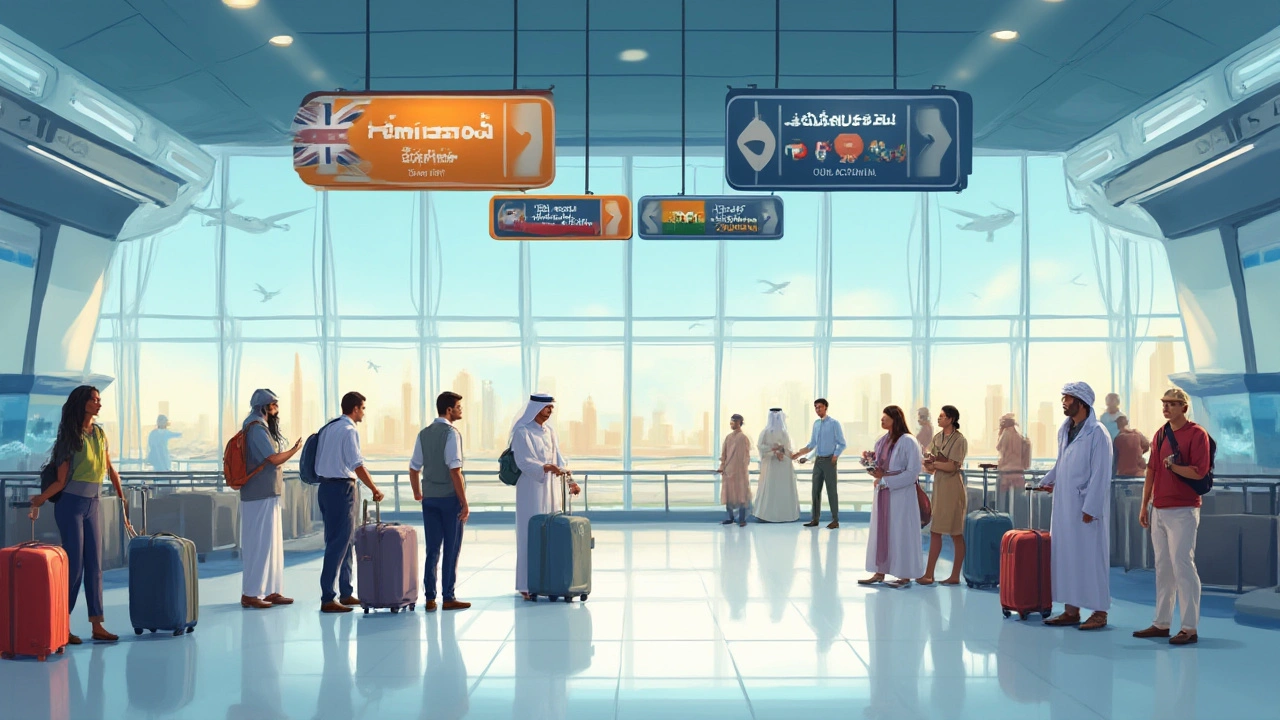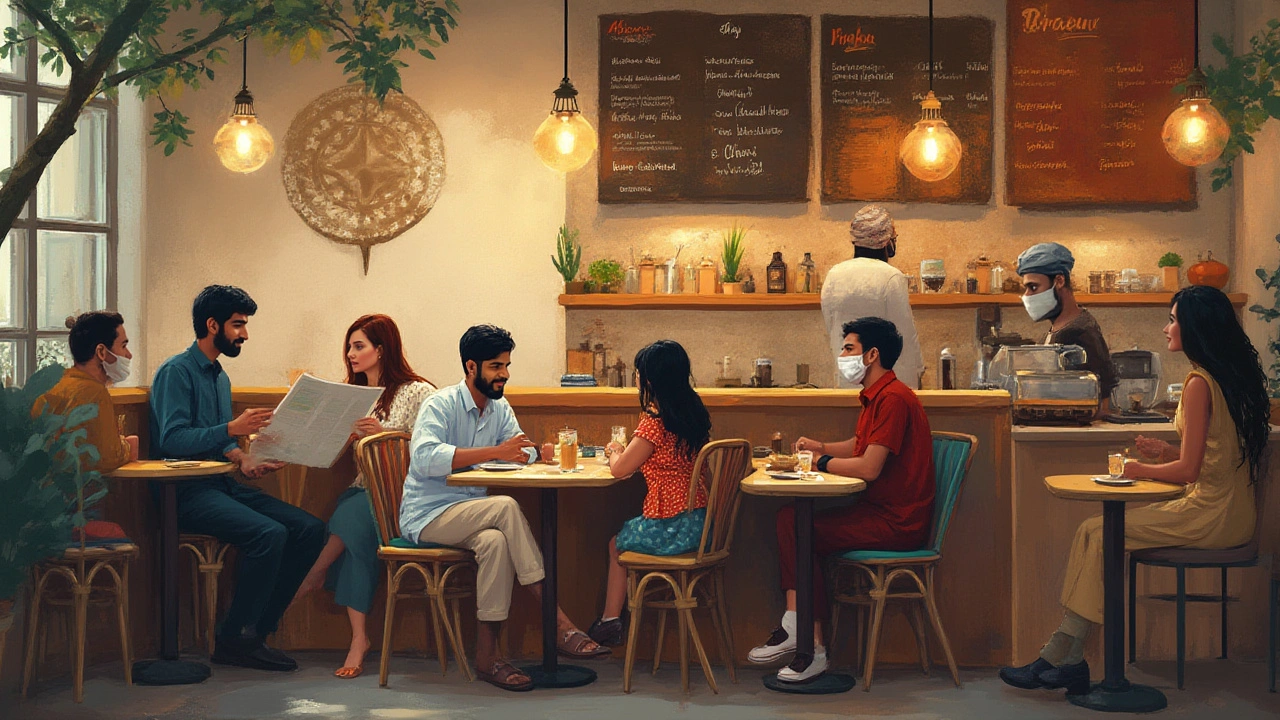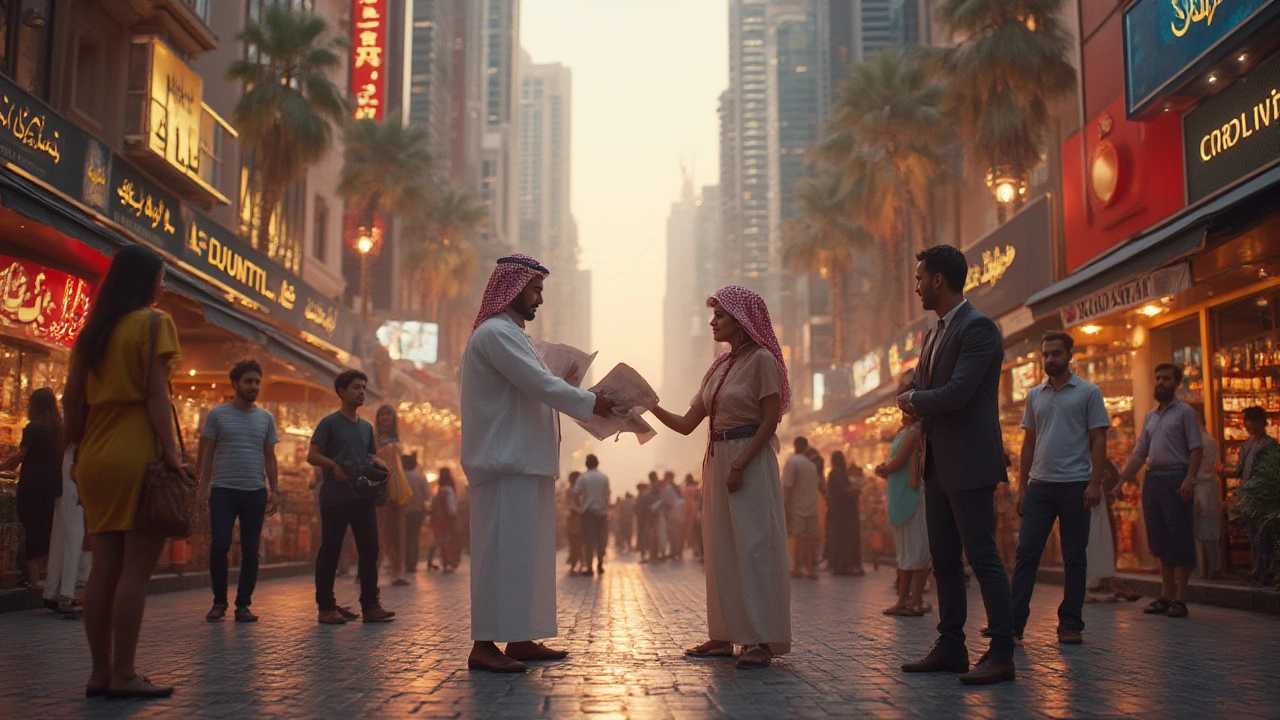Walk through the shimmering souks, neon-bright malls, and bustling beaches of Dubai, and you’ll hear a whirlwind of accents and tongues. Lost in translation? Probably not. Dubai is the city where “hello” might greet you in five languages before lunch. It’s a wild, multicultural mix that can catch first-timers off guard and even trip up the regulars. So, what language is spoken in Dubai—and how does anyone understand each other?
The Official Language of Dubai
Let’s get one thing straight. The official language of Dubai is Arabic. It’s splashed across all government signs, is the language of law, and echoes from mosques at prayer time. If you flip on local radio stations or watch UAE news, Arabic will surround you. But in daily life, the city’s history and crazy-fast growth mean you’ll probably hear more English if you’re just getting around. Yet, Arabic shapes the rules, the place names, and how the city sees itself. You’ll spot classic phrases—like “As-salamu alaykum” meaning peace be upon you—used politely everywhere. Curious fact: Arabic script is written right to left, and you’ll see it thickly painted on building signs, road maps, and official notices all across Dubai.
If you’re a resident, learning some basic Arabic words makes life much friendlier. Think of simple greetings, directions, and numbers. But there’s no pressure. You don’t need to be fluent to manage life in Dubai—most services are ready in English, too. Still, picking up simple words—even just “Shukran” for thank you—gets you smiles and real respect from locals. Some expats even find themselves blending English with a few Arabic words after a year or two, creating a city-specific “Dubaian” slang that’s unique and almost a language all its own. And don’t forget, Modern Standard Arabic is what you’ll find in newspapers and government documents, but in daily conversation, people use Gulf Arabic, which has its own local flavor and quirks.
English: Dubai’s Everyday Language
Here’s where Dubai becomes really interesting. English is everywhere. Seriously, try ordering food, hailing a cab, or shopping—odds are, English will do just fine. It’s taught from early school years, it’s the language used in most business meetings, and even those famous Dubai police cars usually have English instructions glued next to the Arabic ones. When you land at the airport, English is loud and clear on almost every directional sign. Hotel staff, supermarket workers, waiters at beach clubs—you name it, you’ll almost always be welcomed in English first. About 85% of Dubai’s population are expats, coming from India, the Philippines, the UK, Pakistan, and way beyond. That’s made English the social and commercial glue that sticks the city together.
Want to open a bank account or rent an apartment? Every contract and major document comes in English. International companies, global tourists, foreign workers—all rely on English to keep Dubai running. You’ll even notice some Emiratis switching back and forth between Arabic and English in the same sentence. It’s just normal here. But English has its quirks. You’ll hear a blend of accents, from British and Australian to Tagalog-tinged or Indian-style English. Want to practice your own English or learn new idioms? Dubai is a stage where everyone’s accent is accepted, and nobody bats an eye if you ask for the “lift” instead of the “elevator.” Even hospitals and clinics will ask what language you’re most comfortable in before figuring out the paperwork. English really is the “unofficial official” language of everyday life here.

The Multilingual Melting Pot of Dubai
It’s not just Arabic and English that fill Dubai’s tangled airwaves. Walk through Deira’s souks or ride the Metro during rush hour and you’ll hear a full orchestra of tongues. Hindi, Urdu, Tagalog, Malayalam, Russian, French, and Farsi pop up, sometimes within minutes. That’s no accident. Dubai is shaped by migrants from South Asia, the Philippines, Africa, Europe, and more. The Indian and Pakistani populations are massive, with workers and business owners bringing Hindi, Urdu, Malayalam, Punjabi, and Gujarati into the city’s soundtrack. Head over to Al Satwa or Karama, and you’ll hear shopkeepers switching from English into Filipino (Tagalog), then back again.
Jobs, background, and neighborhoods often hint at what language dominates. Service industries rely heavily on Tagalog, Hindi, and Urdu, while luxury real estate and global brands might favor Russian or French with their wealthy clientele. It isn’t uncommon for a group of friends to each speak a different native language, but everyone rallies around English to keep the conversation going. Dubai’s local government has responded by making official websites and emergency information available in multiple languages, even including Chinese and Russian translations for some services. Fun fact: during the Dubai Expo 2020 (which actually ran into 2022, thanks to a little thing called COVID), visitor guides were published in more than a dozen languages, including Spanish, Japanese, and German. The city’s public transport system also often displays information in up to five or six languages at once.
- Tip: If you have a few words in Hindi or Tagalog up your sleeve, use them! You’ll instantly get bonus points with many Dubai residents.
- Be ready for a rainbow of accents and regional slang. You might hear “please open the light” instead of “turn on the light”—this city’s English adapts and thrives like the people who live here.
Language at Work and School
Whether you land a job on Sheikh Zayed Road or drop your kids at a local school, language matters. For business, the primary language is almost always English. Most meetings, contracts, emails, and presentations are held in English, making it easy for expats from all corners to work together. Yet, government jobs and legal departments often still require strong Arabic skills. If your job calls for talking to Emirati clients or interacting with public offices, brushing up on Arabic feels smart.
Schools in Dubai are like miniature U.N. assemblies. The curriculum you choose sets the stage for language. British, American, and International Baccalaureate schools teach mostly in English. However, because Arabic is mandatory for all students (yes, even expats!), everyone gets at least a taste of the region’s mother tongue. Some schools go beyond—offering extra language tracks in French, Russian, or even Mandarin, depending on the school’s student mix. Local Emirati families might prefer Arabic-medium schools or private institutions that teach in both Arabic and English. Universities? English rules the roost, with lectures, research, and administration almost entirely in English, unless you’re studying law or Islamic studies, which dive deep into Arabic.
Don’t forget, paperwork comes in two flavors: Arabic and English. You can expect to sign contracts and receive official notifications in both. Lost in the legalese? Professional translation services are everywhere, as are bilingual staffers in banks, clinics, and real estate agencies. Tip: Keep a translation app on your phone, but don’t be shy about asking for help—locals and seasoned expats know the most common language switches and love sharing their own shortcuts.
- Pro-tip: Learning the basics in both English and Arabic makes day-to-day tasks a breeze and can open up jobs in hospitality, events, or tourism.
- Arabic skills are extra handy if you plan to work with government offices, start a business, or dig into traditional Emirati culture.

Tips for Navigating Language Barriers in Dubai
First-time visitors often worry about getting lost in translation. But Dubai has made it almost fool-proof to live, work, and visit with just one language in your pocket—English. Use it everywhere from taxis and police checkpoints to luxury hotels and beach clubs. Still, a few tips will help you blend in better and maybe even impress some locals.
- Language in Dubai is diverse. Don’t stress if you stumble over a greeting in Arabic or a shopkeeper’s accent throws you off. Smile, and most people will quickly find a way to help you.
- Restaurant menus, tax instructions, and online shopping platforms almost always offer an English option. Many provide Hindi, Urdu, or Tagalog translations, especially in neighborhoods with big expat populations.
- If you want to learn Arabic, plenty of evening classes, apps, and language centers make picking up the basics easy. Try Duolingo or Babbel for starters, or check out the Arabic classes at the Dubai International Academic City (DIAC).
- Ordering a cab? Most drivers know the basics in English, but it helps to use clear place names or show addresses on your phone. The Careem and Uber apps support English and Arabic, too.
- Emergency help is just a call away, and operators are ready to switch languages if you need it. Don’t panic—Dubai police, ambulance, and fire services all have bilingual responders.
Quick fun fact: Some neighborhoods have unofficial language zones—Deira has a strong South Asian presence (think Hindi and Urdu), Satwa is big for Tagalog, and Jumeirah sparkles with Brits, Russians, and more. Don’t be surprised if café staff or shopkeepers greet you in one language, then expertly swap to another mid-sentence. Dubai’s residents are the real polyglots—many speak three or more languages as part of their daily routine!
If you’re new, don’t hesitate to ask others to repeat themselves or write things down. People here are used to adapting, so most will be patient—or even throw in a joke about Dubai’s wild language mix. With a little patience, a smile, and the willingness to listen, you’ll get by—and maybe even pick up a few new words for your next trip to this fascinating city.
